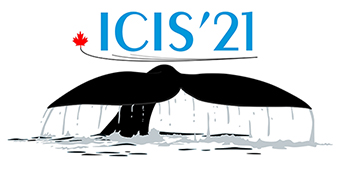Speaker
Description
RF-driven negative hydrogen ion sources are operated at low frequencies around 1 MHz, gas pressures around or below 1 Pa and large power densities up to 10 Wcm$^{−3}$. Owing to these conditions and further design criteria, such as discharge geometry and antenna layout, the RF power coupling is far from optimized, i.e. only a fraction η of the power delivered by the generator is absorbed by the plasma. This considerably limits the performance and reliability of RF-driven ion sources. To study the bidirectional RF power coupling a self-consistent fluid model is introduced. The model validation shows how the interplay between the nonlinear RF Lorentz force and the electron viscosity (which is usually neglected in state-of-the-art fluid models, where no steady state is obtained) yields a steady state discharge structure and trends as in the experiment. In a companion contribution by S. Briefi et al. to this conference, the predictive fluid model is applied to optimize η in RF ion sources.
| E-mail for contact person | dominikus.zielke@ipp.mpg.de |
|---|---|
| Funding Information | This work has been carried out within the framework of the EUROfusion Consortium and has received funding from the Euratom research and training programme 2014-2018 and 2019-2020 under grant agreement No 633053. The views and opinions expressed herein do not necessarily reflect those of the European Commission. |
